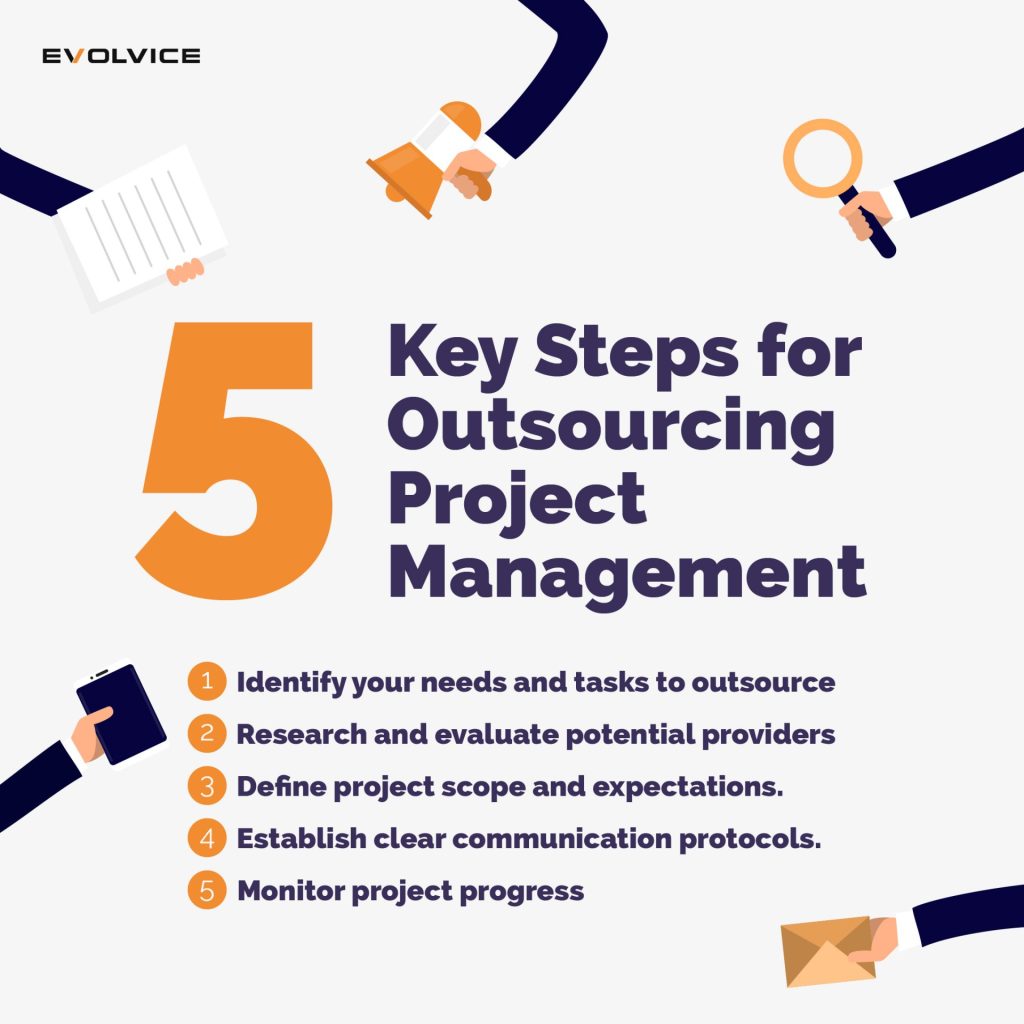Outsourcing software development has become a common practice for businesses of all sizes, as it offers a cost-effective way to access skilled software developers and other IT professionals. However, outsourcing can also present challenges when it comes to project management. When working with an outsourced team, ensuring everyone is on the same page, deadlines are met, and the project is completed to your satisfaction can be challenging. This is where good project management comes in.
Transparent project management involves making all aspects of the project visible and easily accessible to all team members and the client, regardless of their location. This includes project goals, timelines, budgets, tasks, and progress reports. When done correctly, transparent project management can lead to better communication, increased efficiency, and a more successful project.
In this blog, we will explore the importance of project management when outsourcing software development and Evolvice’s approach to transparent project management.
The Benefits of Transparent Project Management
Partnership and Trust
When working on a custom project, we aim to provide working software and cultivate a strong partnership and trust with our clients. This foundation of trust is essential in fostering collaboration, open communication, and a shared vision.
Ownership and responsibility
One of the best results of transparent project management is that the whole team is aware of all the project aspects and can proactively take over responsibility. When all team members can see what others are working on, their goals, and progress, they can quickly identify and address potential roadblocks before they become more significant issues. This leads to smoother communication and, ultimately, a more successful project.
Increased Efficiency
Transparent project management also leads to increased efficiency. When everyone is on the same page and has access to the same information, it becomes easier to prioritize tasks, delegate responsibilities, and make informed decisions. This can save time and reduce the risk of mistakes or miscommunication.
Improved Quality
When everyone on the team clearly understands the project goals and requirements, it becomes easier to ensure that the final product meets the desired quality standards. Transparent project management allows for feedback and suggestions from all team members, which can lead to improvements and, ultimately, a higher-quality final product.
Exploring the World of Project Management Outsourcing Options
Several options are available to businesses looking to outsource their project management needs. Let’s take a look at some of the most popular choices:
1. Business Process Outsourcing (BPO) Companies
BPO firms offer various services, including back-office tasks, customer-facing tasks, and project management. These companies can provide scalable solutions tailored to specific business needs, helping to improve efficiency and gain a competitive edge.
2. Knowledge Process Outsourcing (KPO) Firms
KPO firms provide high-value, knowledge-based services requiring advanced skills and expertise. By outsourcing project management to KPOs, businesses can access specialist knowledge and insights that can help inform decision-making and drive innovation.
3. Virtual Assistant Outsourcing
Virtual assistants (VAs) can be invaluable allies in project management. These tech-savvy professionals can assist with various tasks, from administrative duties to project planning and execution. By working with VAs, businesses can benefit from personalized support and greater flexibility in meeting their project management needs.
5 Key Steps for Outsourcing Project Management
5 Key Steps for Outsourcing Project Management
To successfully outsource project management, follow these key steps:
1. Identify Your Needs and Tasks to Outsource
- Define project scope clearly: Clearly outline the project’s objectives, deliverables, and expected outcomes.
- Assess internal capabilities: Evaluate your team’s strengths and weaknesses to determine which tasks are best suited for outsourcing.
- Prioritize tasks: Identify which project management functions are critical to your business and should remain in-house.
- Calculate ROI: Analyze the potential cost savings and efficiency gains of outsourcing specific tasks.
2. Research and Evaluate Potential Providers
- Define selection criteria: Create a list of essential qualifications, experience, and industry expertise for potential providers.
- Conduct thorough research: Explore the market, gather information on potential partners, and compare their services and pricing.
- Request proposals: Invite shortlisted providers to submit detailed proposals outlining their approach, methodology, and pricing.
- Reference checks: Verify the provider’s reputation and performance by contacting previous clients.
3. Define Project Scope and Expectations
- Create a detailed project plan: Develop a comprehensive project plan outlining timelines, milestones, and deliverables.
- Establish key performance indicators (KPIs): Define measurable metrics to track project progress and success.
- Allocate resources: Determine the necessary resources, including budget, personnel, and technology, for the project.
- Risk assessment: Identify potential risks and develop mitigation strategies.
4. Establish Clear Communication Protocols
- Define communication channels: Determine the preferred methods of communication (email, phone, video conferencing, project management software).
- Establish communication frequency: Determine how often you will communicate with the outsourced team (daily, weekly, bi-weekly).
- Create a communication plan: Outline roles and responsibilities for communication, including who will be the primary contact.
- Use project management tools: Implement software to facilitate collaboration and information sharing.
5. Monitor Project Progress
- Regular progress reports: Request regular updates from the outsourced team on project milestones and deliverables.
- Conduct performance reviews: Evaluate the outsourced team’s performance against agreed-upon KPIs.
- Provide timely feedback: Offer constructive feedback to the outsourced team to improve performance.
- Adjust project plan as needed: Be prepared to make changes to the project plan based on unforeseen circumstances or changing requirements.

Evolvice’s Approach to Transparent Project Management
Evolvice has been providing custom software development services since 2012. We work with businesses of all sizes and see that professional project management is essential for success.
Here are some of the ways that Evolvice promotes transparent project management in their work:
1. Clear Communication Channels
We believe that clear communication is the foundation of any successful project. They ensure that all team members have access to the same information and use a variety of communication channels to ensure that everyone is on the same page. This includes regular team meetings, progress reports, and daily stand-up meetings.
2. Real-Time Project Management Tools
We use real-time project management tools that allow team members to collaborate and communicate effectively. These tools provide a centralized location for all project information, including tasks, timelines, budgets, and progress reports. This allows for easy tracking of progress and better communication between team members.
3. Detailed Project Plans
We create detailed project plans that outline each project’s goals, requirements, and timelines. These plans are shared with all team members and regularly updated to reflect project scope or timeline changes. This ensures everyone is on the same page and clearly understands the project goals.
4. Regular Progress Reports
We provide regular progress reports to their clients, which include updates on the project’s status, budget, and timeline. These reports are shared with all team members, allowing for transparency and accountability throughout the project.
5. Data Security
We understand the importance of data security and take steps to ensure that our client’s data is protected. They use secure data transfer protocols and ensure all team members follow strict security protocols. Additionally, Evolvice uses secure cloud-based servers to store project data and provides its clients with access to these servers.
Conclusion
Transparent project management is essential when outsourcing. It allows for better communication, increased efficiency, and a more successful project. At Evolvice, we understand that and take steps to promote it in our work. We use clear communication channels, real-time project management tools, detailed project plans, and regular progress reports to ensure everyone is on the same page and the project is completed to their clients’ satisfaction.
Working with a company that values transparent project management and data security is essential when outsourcing. We are committed to providing our clients with high-quality software development services while protecting their data. If you are looking for a reliable software development partner that values transparent project management, consider Evolvice for your next project.


